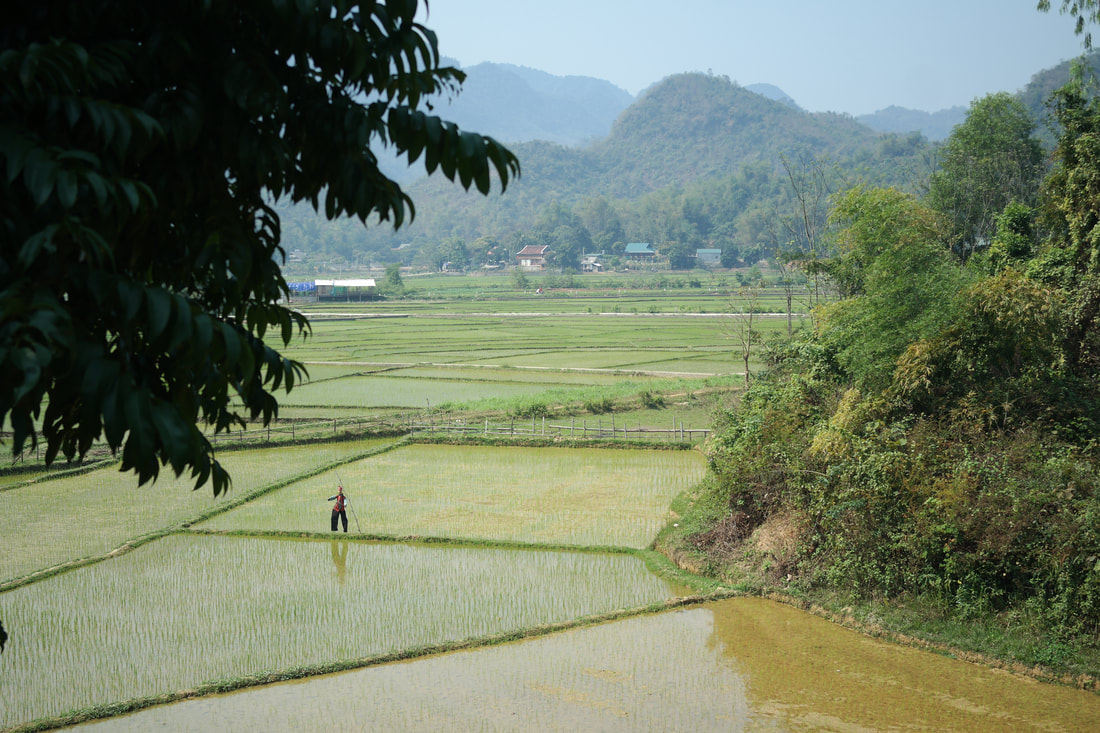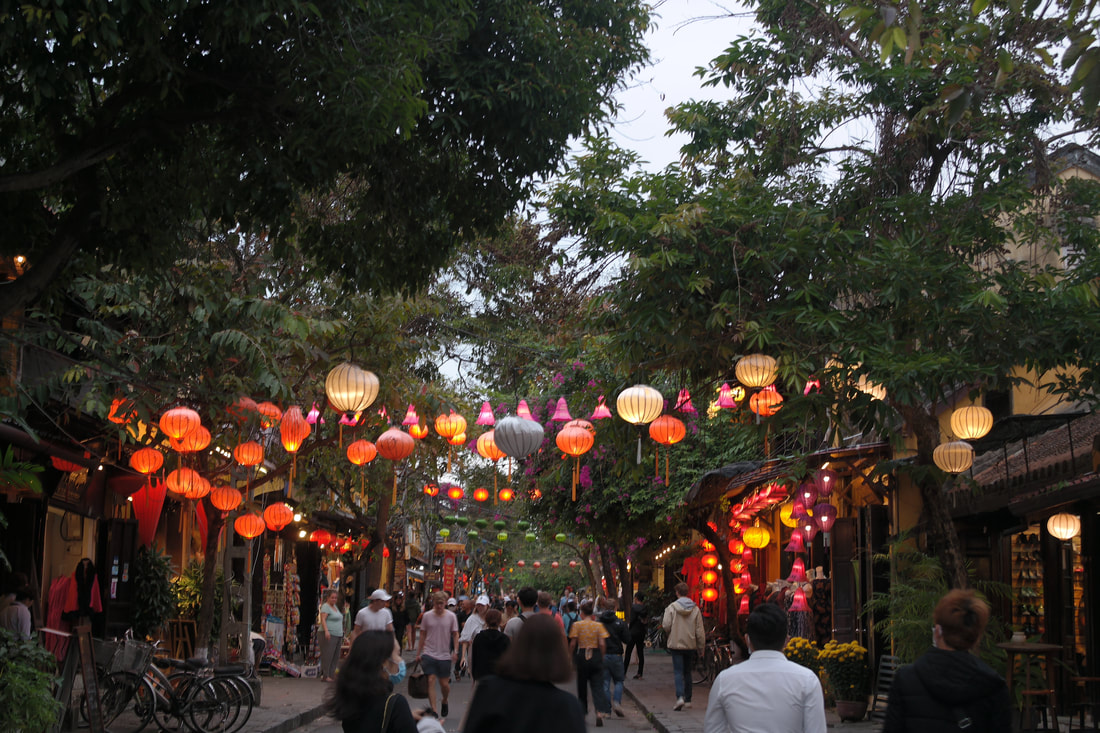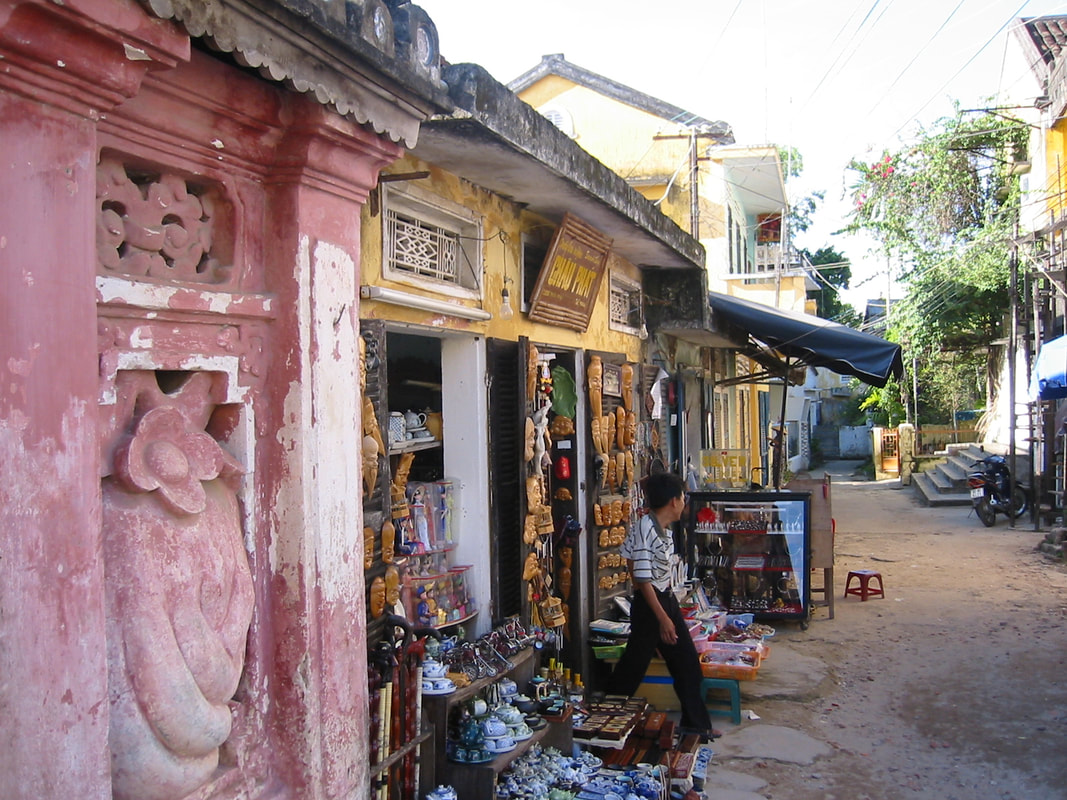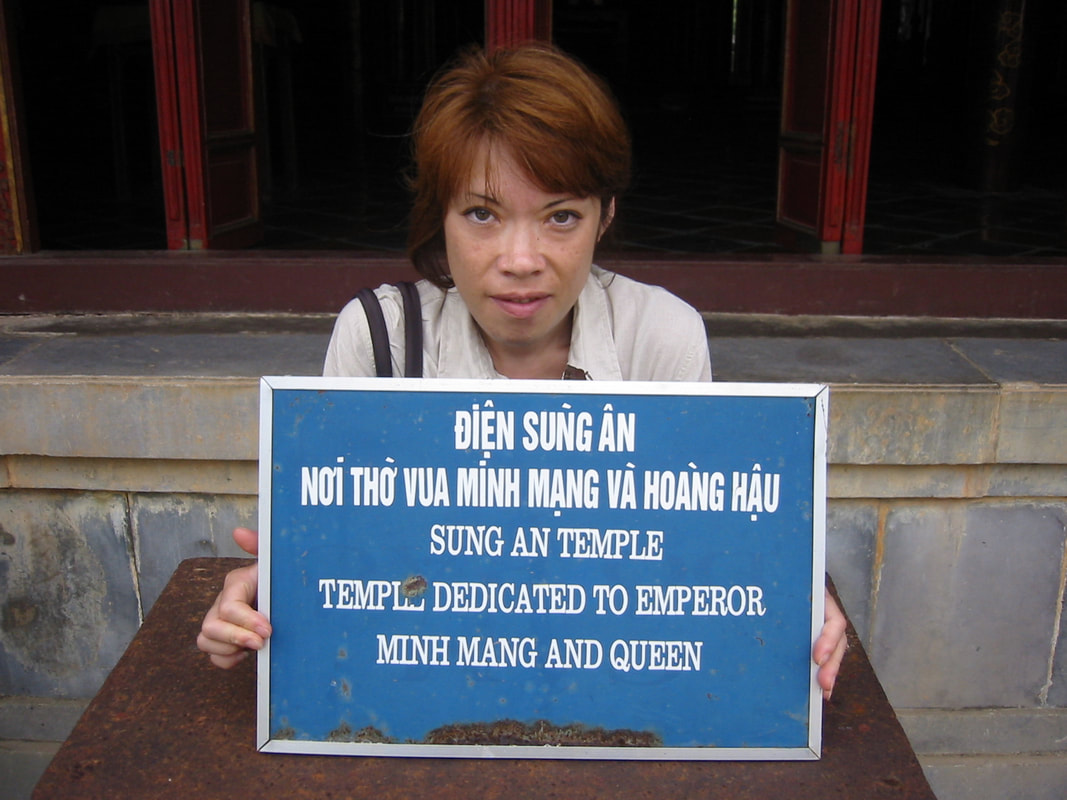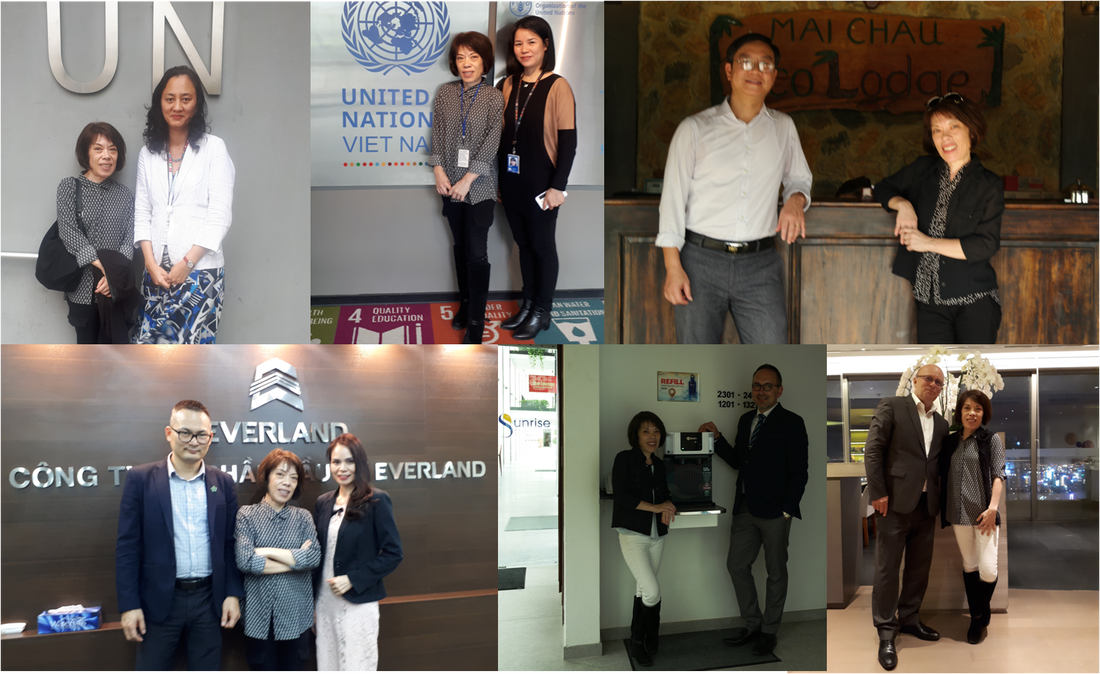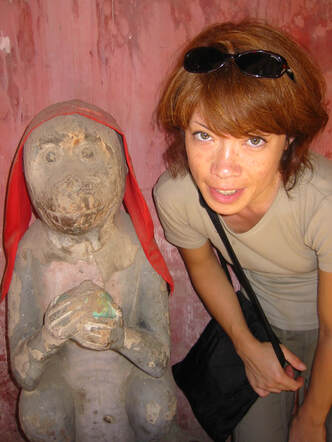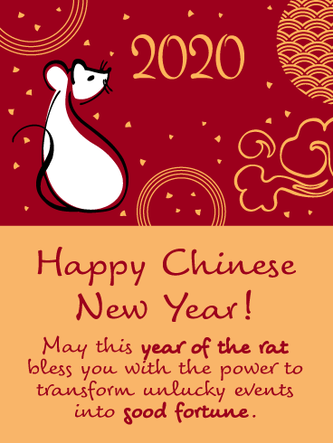|
By Catherine GERMIER-HAMEL Last month, I undertook a "bleisure" (business + leisure) trip to Vietnam on my own, at the beginning of what was about to become a worldwide crisis, the COVID-19 outbreak. An interesting journey that inspired me several thoughts about responsibility. “Please confirm you are a human” I don't consider myself a control-freak but I really don’t like when people make decisions for me. Being able to choose makes me feel empowered and I often enjoy being offered multiple options. At the same time, I sometimes feel relieved when I don’t need to choose or even when I believe I have no choice. Let me confirm it, I am a human. To be responsible is to be in charge. This means at least two things: to have the capacity / authority to make decisions and to be accountable for the consequences of these decisions. Responsible decision-making is not easy, especially when losses are involved and choices are many, but in the end, this may be the best expression of human nature. Does the travel industry fear responsibility? Fear and anxiety are arguably the worst enemies of travel. Over the past weeks, many travel and hospitality businesses have seen their activities frozen due to increasing concerns over the COVID-19 coronavirus outbreak. In particular, the MICE (Meetings, Incentives, Conventions and Exhibitions) sector has been seriously affected by serial cancellations of events. Early March, and for the first time in its 54-year history, the top world travel fair ITB Berlin was cancelled by its organizers, based on the recommendations of the Federal Ministries of Health and Economics. Although made with a heavy heart, and for obvious health and safety reasons, this last-minute decision has received mixed reactions from the travel industry. For some professionals, the cancellation of the not-to-be-missed trade show actually sent a wrong message to the world: if even travel professionals are discouraged to travel, what can we expect from the general public? The fact that many people, especially from Asia, were already in Germany at the time of the decision may explain this stance. On the other hand, this 2020 edition could have been the last in the history of ITB Berlin if it had been maintained. But who knows? Someone took the responsibility to upset dozens of thousands of people who had themselves taken the decision not to cancel their participation, after evaluating the risk of being contaminated or contaminating their peers. Nobody should be blamed but everybody should feel responsible. According to the oxygen mask rule, we are advised to ensure our safety first before providing assistance to others and especially children. This could be called an adult decision and this is probably not what people would immediately choose to do but there is a rationale behind this seemingly selfish recommendation. If you are out of the game, how can you possibly help others? I guess this also applies to travel professionals. In this world of unpredictability and uncertainty, decisions are not easy to make and sometimes, we have no choice but to trust our gut (well, you'd rather not if you are a Head of State). In any case, we should be ready to assume the results of our choices, especially when they affect other sentient beings. Inaction as a pain (and gain) killer For some, doing nothing may be the safest option even if the consequences of inaction can also be painful and far-reaching. In the case of the COVID-19 crisis, the decisions to cancel or postpone public gatherings are devastating economically, socially, culturally, and psychologically. They not only confirm our fears but also nurture and even intensify our anxiety. They may be seen as a defeat against adversity and at the same time, a safe escape from conundrum and choices. Doing nothing can also be interpreted as carrying business as usual as if in denial, instead of acknowledging the reality of an unpredicted situation. Like those airlines that are running empty “ghost” flights during the coronavirus outbreak because of European rules. But then again, too many scenarios can be overwhelming, particularly when they are disaster scenarios. In today’s society, media are constantly feeding us with alarming news and scary stories of risks, dangers and losses. Climate change communication has generated a great amount of eco-anxiety and depression among Millennials and Gen-Z kids, but not only. As a result, our more or less rational fears are paralyzing us, and rather than making our own choices, we have become increasingly dependent on algorithms, decision-making tools, influencers and advisers that are choosing for us, not necessarily to our best interests. As a result, we have become irresponsibly passive. Or we may just panic and let our reptilian brains take control over our decisions and make us buy toilet paper in bulk. In this context, being nudged towards responsible choices and behaviors may be useful and even indispensable. A microadventure in Vietnam A few months ago, we all wanted to believe that 2020 would be a fantastic year. At least, it could not be worse than 2019. As for me, my new-year resolution was simply to travel to Vietnam, where half of my roots are grounded. Although I was born and raised in France, it happens that my four Vietnamese Tonkinese great-grand mothers have married or dated French settlers at the time of the French Indochina. As a member of the third generation of Eurasians in my family, I’ve never really paid great attention to my Asian heritage until quite recently. At the very beginning of what was about to become a worldwide sanitary crisis, and more precisely on January 25, 2020, I resolved to undertake a journey to Vietnam. I had actually made that decision the previous month during a family gathering in France. I then confirmed this plan on the first day of the Lunar New Year, called Têt in Vietnam and 설날 (pronounced "seollal") in Korea. I have celebrated Têt every year for as long as I can remember but I only understood the meaning and significance of this special occasion after I moved to Seoul in 2005. This year, I wanted to properly pay respect to my ancestors and unmask myself. I visited Vietnam for the first time in 2004. For about four weeks, I have traveled throughout the country from North to South, together with my soon-to-be husband. The only thing I found familiar and rather comforting was the local food, which I had enjoyed during my whole life thanks to the culinary talents of my grand-mothers and my mother. Again, I had never really shared my family's love for Asian food, until I live in Korea. The second time I went to Vietnam was in October 2018, when I attended the International Conference on "New Tourism - Local to Global Initiatives" in Ninh Binh, Northern Vietnam. The third and last time was a couple of weeks ago. This time, I had planned to go to Hanoi on my own for many reasons which reason knows nothing of. Actually, I badly needed this journey to reconcile with my Asian half, which I had neglected or even rejected. This is probably one of the reasons why it did not come to my mind that I should cancel my trip over health concerns. Indeed, Vietnam was calling me in a more and more pressing way, and nothing would stop me from executing my project. Initially, my plan was to get in touch with a few persons and institutions in Vietnam in relation to the 24th Annual Forum of the World Association for Hospitality & Tourism Training and Education (Association mondiale pour la formation hôtelière et touristique - AMFORHT), which was expected to take place in Seoul, South Korea on May 19 to 22. On February 11 [updated: postponed to 2021]. The same day of my departure to Hanoi, I had introduced the AMFORHT Forum at the monthly meeting of Skal International Seoul. At that time, all my Skaleagues were confident that the COVID-19 situation was under control and would be over with the warming of the temperatures. I shared the same confidence, or let’s say that I chose to stay positive. Although Vietnam is not that far from Korea, I did not want to travel there for just a few days, partly because I did not think it was a responsible way of travelling. Moreover, I keep telling people that overseas stays should be extended as much as possible and I felt I should be consistent with what I preach. I therefore decided to include visits and meetings in relation with sustainable, community-based tourism in Vietnam. In particular, I wanted to have a chance to introduce the consulting and training services offered by Millennium Destinations for tourism and hospitality marketing and sustainable development. In recent years, international tourist arrivals have increased significantly in Vietnam, to reach 18 million in 2019 (from about 2.1 million in 2000), hence the need to educate and train local human resources, and build their capacities. Moreover, smart, sustainable tourism development as well as Community-Based Tourism (CBT) have become a priority for the country. Finally, I also wanted to identify potential partners and hosts for Herost, a social impact platform that I co-founded with three other partners, aimed at promoting responsible, eco-friendly travel experiences that are primarily centered on the local communities and their environments. With the precious support of friends and colleagues, such as Randy DUBAND, CEO of the Global Sustainable Tourism Council, and Theo NOH, CEO of NEO Marketing Plus, I had the chance to connect with extraordinary, courageous (considering I was coming from Korea) people such as Mr. David NAUDIN, Director of International Cooperation & Partnerships of CitySmart Hotel Management, Dr. Thu Hoang, Dean of Faculty of Management and Tourism, Hanoi University, Ms. Natalie DO, Director of Sales of Heritage Cruise, Ms. NGUYEN Thi Huyen, National Project Coordinator at the International Labor Organization (ILO), Mr. Bobby NGUYEN and Ms. LUU Quynh Va, respectively General Director and Deputy General Director of Crystal Holidays, Ms. PHAM Huong, Program Officer at UNESCO Vietnam, Dr. Hoang, Dean of Hospitality and Tourism School at National Economics University, and Ms. Phuong Tran, Head of Community Development at Evergreen Labs. I also took the opportunity of this journey to evaluate a variety of accommodations implementing remarkable green, sustainable practices such as Mai Chau Ecolodge, Sunrise Premium Resort and Spa Hoi An, and Novotel Danang Premier Han River. I was particularly impressed by the bold decisions taken by the General Manager of Sunrise Premium Resort and Spa Hoi An, Mr. Sven SAEBEL, such as installing water refill stations to replace individual plastic bottles. I consider it a responsible decision, especially because it is fully assumed. I also enjoyed sharing stories with Mr. DU Quang Huy, Director of Mai Chau Ecolodge which employs 90% of local community members, including Ms. THAO Phuong Ha, from the Tay community who became Sales Director of Mai Chau Ecolodge. Although I remained unmasked during my whole trip to Vietnam, involving stays in Hanoi, Mai Chau, Hoi An and Danang, I tried to follow basic recommendations to avoid catching the coronavirus and contaminating others. I was lucky to be able to enjoy Hoi An as it was ten years ago, but I quickly became a little concerned at the view of all those (relatively) emptied tourist areas. Whereas overtourism has become a hot issue for many destinations, we are now facing a worrying undertourism situation. Responsible tourism: a booster shot
The concept of responsible tourism has become increasingly popular over the past decade, often as a replacement for sustainable tourism. In fact, many people do not feel comfortable with sustainable tourism, often viewed either as an oxymoron or an absurdity, if not a lost cause. For some of them, sustainable travel involves nit travelling at all. Very often, sustainable tourism is considered a niche market or a product whereas its advocates will insist that it is a journey, a strategy, a paradigm, an approach, a model etc. embracing any form of tourism and any kind of destination. As a result, people tend to give preference to responsible tourism or travel, which seems more achievable and accessible. Developed through a participatory approach and adopted in 2002 on the occasion of the World Summit on Sustainable Development, the Cape Town Declaration on Responsible Tourism is about “making better places for people to live in and better places for people to visit.” As an integrated multi-stakeholder approach, responsible tourism:
For me, responsible tourism is the spitting image of sustainable tourism (although we should refrain from spitting, and particularly these days). But let’s not play with words and let’s try to focus on what matters most: achieving net positive impacts on people and places, a purpose supported by the power to make the right decisions and to fully bear for the consequences of the choices we make, whether we are hosts or guests. I personally believe the tourism and hospitality industry should assert and demonstrate its determination, courage and sense of responsibility. Our main mission is to make people happy and we need to be positive, creative and audacious to fulfill it. And as people say, including President John F. Kennedy in 1959, the Chinese word for "crisis" is a combination of two characters, one for "danger" and one for "opportunity". This may not be correct but why don't we pretend it is? Together, let's co-create these opportunities and let's support each other to demonstrate, once again, the resilience and responsibility of our sector. To be continued...
0 Comments
Leave a Reply. |
Archives
February 2024
|
|
France - Cambodia
|
|
Promoting Positive Places, Practices and Experiences
|
Icons by Freepik from www.flaticon.com
|

